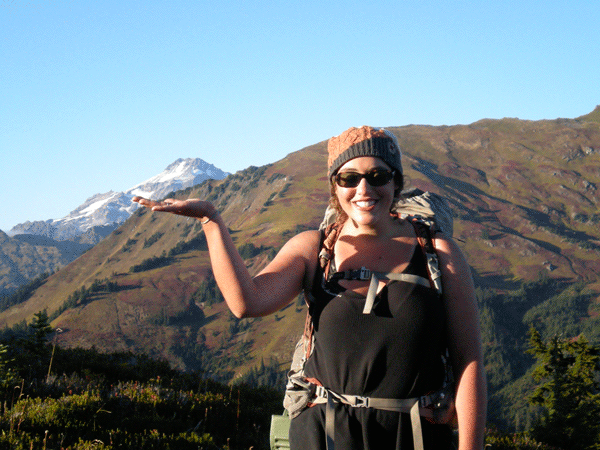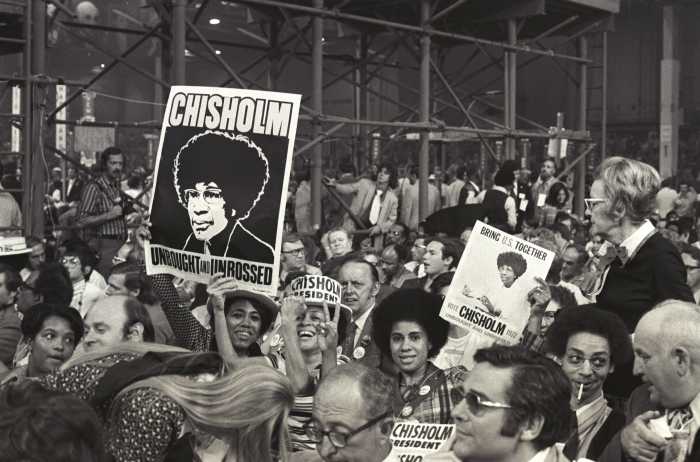
BY CHRISTINA E. L. HARMAN | On a cool Monday night, freshly published memoirist Aspen Matis rushed into the West Village’s French Roast and into its back room out of breath but full of energy. She juggled two oversized Barnes & Noble shopping bags, filled to their capacity with $300 worth of books — the plastic possibly tearing at any moment. In her left hand, the 25-year-old author held a half-eaten pint of chocolate-peanut butter ice cream with a plastic spoon sticking out of it.
She apologized for running slightly late, but she couldn’t resist buying each book that caught her attention and did not have time to stop by her apartment on MacDougal St. before heading over to her favorite coffee shop. After settling in, she started passing the books around, from Sean Doyle’s “This Must Be The Place” to A.M. Homes’s “May We Be Forgiven.”
“If you’re endlessly curious, your stories are endlessly interesting,” she said, confidently explaining that these literary works will help her discover new things.
In Matis’s new memoir, “Girl in the Woods,” she tells how she embarked on a trek of the 2,650-mile Pacific Crest Trail, from Mexico to California, to overcome the trauma of being raped on her second night of college and to break free from her mother’s overprotective embrace that Matis endured growing up. While achieving these ends, she meets new friends along the trail, finds love, discovers her strength and is able to rebuild herself anew.
“You are more powerful than you are,” she said.
Matis hiked the P.C.T. in five months by navigating the trail alone with no map and inadequate resources. Throughout her journey, all she carried in her pack was a pair of leggings, a fleece-lined wool hat, her iPod, dried fruits and trail mix and five Gatorade bottles that she filled with water. Each day was another day that she risked her life, and the chances of finding food or something to drink were limited.

Her love of the outdoors stems from growing up backpacking, camping and hiking with her parents and two brothers in Colorado near her grandparents’ house. Matis described her family, when they would set out on their trips, as becoming a harmonious tribe.
“I found the security of love amid those gorgeous landscapes,” she said.
Looking back on it now, talking about her family almost brings her to tears. Her eyes grew large as she spoke about her mother and father — both Harvard-educated lawyers — two brothers, and their adventures while hiking.
Prior to her memoir’s release, she sent copies to her entire family for their approval. Both of her parents were supportive and proud of her accomplishment, she said, though she did not always shed a positive light on them. “My intention is to raise $1 million for RAINN, the Rape, Abuse and Incest National Network, not to make my parents look like saints,” she added.
Before hiking the entire P.C.T. after dropping out of college her freshman year, Matis had spent the two previous summers hiking parts of the trail. She wanted to break free from her dependency on her mother, so she left her hometown of Newton, Massachusetts, for points west.
“I was 17, I lied to my parents and essentially ran away,” she said. “I walked 220 miles through the wilderness alone. I totally lost my parents’ trust then.”
As a teen hiking solo, Matis for the first time came to the realization that “everything my mother told me I couldn’t do was wrong.” She finally felt in control and competent.
Later, when she dropped out of college and hit the P.C.T. to walk its full length, Matis started to shed the shame of her rape and learn to overcome her weaknesses, but she had help along the way. In a recent article in Interview magazine, she spoke about how deeply affected she was by a message she received from her counselor from RAINN: “No one causes rape but rapists.”
As a result, Matis is donating 5 percent of the personal profits from her book to the anti-sex abuse organization and raising an additional $1 million to fund its anonymous hotline.
After walking the length of America’s entire West Coast, she floated around different locations, like Berkeley Hills, California, with her ex-husband, “Justin” in the novel — who she met on the trail — before finding her way to Greenwich Village in August 2011. She wanted to become a writer and realized that Gotham was the place to go.
“Manhattan is a wilderness,” she said. “I built a life here and I never built a life anywhere else.”
Matis restarted her college education and enrolled at The New School where she met her current mentor, Susan Shapiro. After taking her 15-week-long course, “Writing for New York City Newspapers and Magazines,” Matis took four other classes taught by Shapiro. She took each chance she had to learn more from the writing guru.
Each week, instead of having typical office hours, Shapiro hosts “walking hours” where students can come and walk with her for an hour around Washington Square Park. Because Matis lives just around the corner and is, obviously, an avid hiker, Shapiro said that the young writer was always available and wanting to walk. Shapiro hosts book-writing seminars that Matis regularly attended and the New School prof became her guide through her memoir.
Shapiro said Matis was an extremely diligent and very serious student and is proud to call Matis her protégée.
“I am extremely impressed with her work,” Shapiro said. “I find her work extremely poetic and I have a strong connection to it.”
In the past decade, Shaprio has guided and influenced numerous students to become journalists and authors, but Matis deeply touched Shapiro by dedicating “Girl in the Woods” to her.
“I’ve had 85 students that have published books in the last 10 years,” Shapiro said. “I’ve been thanked in most of them but never have been dedicated. I feel honored.”
When Matis isn’t spending her nights lapping Washington Square Park, she regularly visits Village spots Joe, at 141 Waverly Place, The Marlton Hotel, at 5 W. Eighth St., Third Rail Coffee, at 240 Sullivan St., and French Roast, at 78 W. 11th St., as places to write or escape into her reading. Matis refers to French Roast as her “safe golden light in the night” whenever she wants a late night coffee. The Third Rail is her “lock-in” for intensive writing since it’s Wi-Fi free and, she said, “No one I know goes there.”
Since the release of “Girl in the Woods,” Matis gained attention for dealing with her rape in a unique way. She subsequently became a member of the PEN American Center, an association of prominent writers defending the freedom to write around the world. Also, a film agency purchased her life story rights and is in the process of producing a TV series based on her memoir.
She has received a flood of positive feedback from other authors and creative. Actress Lena Dunham praised her memoir as “beautiful and so wildly engaging.”
Matis is astonished by the amount of attention her book is receiving and keeps a packed schedule of interviews and meetings — but that doesn’t stop her from writing. She is currently working on a novel about a woman whose nature is evil but has tremendous self-awareness and desperately wants to be good.
Taking Matis by surprise, her former school, Colorado College, invited her back to campus to talk to students about her rape. It was “impossibly surreal,” she said, to go back to the place where they denied the existence of her rape and to speak about it. But the current campus movement highlighting sex-abuse stories inspired Matis to speak out.
“Truth has power,” she exclaimed happily.






























